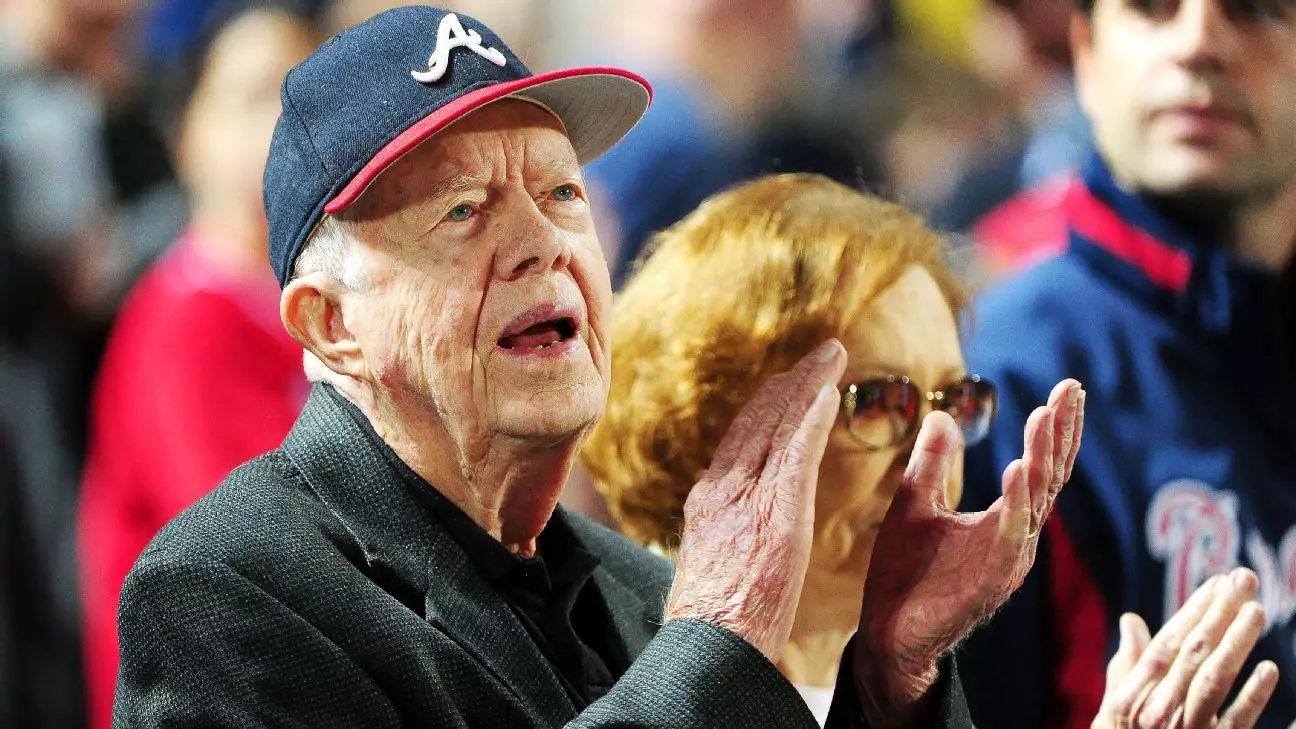Remembering Jimmy Carter: A Legacy of Compassion and Resilience
It’s not often that someone leaves such a profound impact on the world that their legacy continues to inspire long after they’re gone. Former President Jimmy Carter, who recently passed away at the age of 100, was one such individual. His life was a testament to unwavering commitment, not only in public service but also in his humanitarian efforts. As the longest-living president in U.S. history, Carter’s influence extended far beyond his single term in office from 1977 to 1981. He left us surrounded by family at his home in Plains, Georgia, a fitting end for a man whose life was marked by humility and dedication.
Carter’s post-presidency years were just as impactful, if not more so, than his time in office. He remained deeply involved in global humanitarian initiatives and public service projects that have had lasting effects worldwide. His life and work show us the true meaning of leadership driven by integrity and purpose. Even though he has passed on, the reverberations of his compassion and resilience are felt globally. It’s this legacy that we remember and celebrate today.
In remembering Jimmy Carter, I can’t help but feel a personal connection to his story. It’s not just about the political achievements or the awards; it’s about how he touched lives through simple acts of kindness and steadfast principles. Whether you admired him for his political stance or humanitarian efforts, there’s no doubt that Carter’s legacy is one of profound empathy and relentless pursuit of peace and justice.
Key Takeaways
- Jimmy Carter’s presidency was marked by a deep connection to sports, setting precedents for future administrations.
- The Carter Center played a crucial role in global humanitarian efforts, reflecting his commitment to peace.
- Carter’s personal life exemplified enduring values of family and humility, deeply rooted in his Southern heritage.
Champion of Sportsmanship
One unique aspect of Carter’s presidency was his genuine connection to sports, particularly as an enthusiastic Atlanta Braves fan. He wasn’t just a passive observer; he actively engaged with teams, inviting the Pittsburgh Steelers and Pittsburgh Pirates to the White House after their championship victories. This gesture set a new standard for celebrating athletic achievements in Washington. However, Carter didn’t shy away from controversy when sports intersected with politics. In 1980, he made the difficult decision to boycott the Moscow Olympics in response to the Soviet Union’s actions in Afghanistan.
The choice to boycott was not without its challenges or criticism. In his memoir “White House Diary,” Carter reflected on the emotional impact this decision had on American athletes who trained hard for years. It was a powerful reminder of how politics often intertwines with sports, sometimes leading to tough moral choices. The subsequent Soviet boycott of the Los Angeles Games highlighted the complex dynamics at play on the global stage—a testament to Carter’s willingness to stand firm on principles despite potential backlash.

A Humanitarian Legacy
Carter’s influence stretched profoundly into humanitarian work, cemented through the establishment of The Carter Center in 1982. This nonprofit organization has been instrumental in disease prevention, advocating for human rights, and promoting sustainable development worldwide. Initially founded as a platform for democracy and health advocacy, The Carter Center has been pivotal in alleviating suffering in areas afflicted by war or natural disasters. The awarding of the Nobel Peace Prize to Carter in 2002 underscored his relentless dedication to improving lives globally.
Perhaps one of Carter’s most personal commitments was his work with Habitat for Humanity, where he championed affordable housing with incredible passion. For over three decades, he wasn’t just a figurehead—he rolled up his sleeves and participated alongside volunteers building homes. His hands-on approach inspired countless others to join the cause, embodying leadership that values people over politics. Such dedication exemplifies how deeply he believed in every individual’s dignity and right to a decent home.

A Life Rooted in Family Values
Beyond his public persona, Jimmy Carter was very much a family man who cherished traditions and relationships. His marriage to Rosalynn in 1946 laid the foundation for an enduring partnership that lasted until her passing in November 2023. Together they raised four children and maintained strong family values that resonated throughout American culture. Their relationship became symbolic of mutual respect and love, showing how personal connections can be as impactful as public endeavors.
Carter’s humble lifestyle in Plains, Georgia offered a stark contrast to the bustling world of politics he once navigated. From being a peanut farmer to ascending political ranks as a senator and governor, his Southern roots greatly influenced his perspective on governance and leadership style—emphasizing sincerity over spectacle. Even after retiring from public office, he remained active within his community—often seen enjoying baseball games or engaging with locals—remaining ever approachable despite high-profile past roles.
Final Thoughts
Reflecting on Jimmy Carter’s life reveals a journey filled with triumphs and challenges alike—a narrative woven from both political endeavors and deep-seated personal values rooted firmly within him throughout decades-long service towards humanity itself! His contribution towards democracy alongside significant advancements made regarding global health initiatives stand testament today regarding what true leadership looks like underpinned always by unwavering principles & compassion-driven actions taken even amidst adversity faced along way!
Jimmy Carter
legacy
compassion
resilience
humanitarian work


Leave a Reply